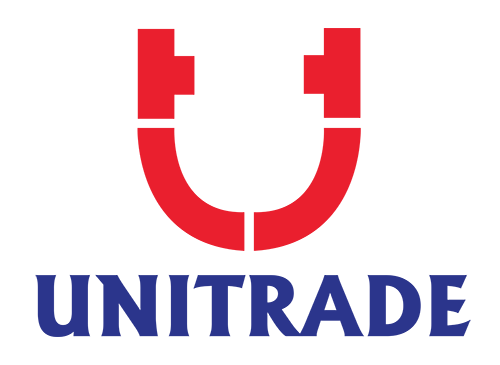Our sustainability efforts are anchored by a governance framework that promotes clear oversight and shared accountability throughout the organisation. Our business must remain as a critical driver of trust. We remain proactive in aligning our internal practices with the latest standards and stakeholder expectations. We continue to strengthen our foundation with the release of new policies to safeguard our business and people.
Governance
Defining Responsible Governance
Our principles of conduct are outlined in a set of key policies that guide our operations and stakeholder engagements.
Sustainability Policy
Health, Safety and & Environment Policy
Human Rights Statement
Anti-Bribery and Anti-Corruption Policy
Code of Conduct
Diversity Policy
Anti-Sexual Harassment Policy
Conflict of Interest Policy
Whistleblowing Policy
Unitrade understands that effective sustainability governance is critical to promoting ethical business operations and securing enduring value for stakeholders. To support the comprehensive adoption of sustainability across the organisation, the Board of Directors and its committees play an active role in supervising sustainability matters. The Executive Director has been named as having Board oversight for Climate Change and Occupational Health & Safety. Oversight begins at the Board level, supported by the Risk Management and Sustainability Committee (“RSMC”), which ensures alignment with the Group’s corporate strategy and internal control systems.
Unitrade remains firmly committed to high standards of corporate governance in line with the Malaysian Code of Corporate Governance (“MCCG”), having adopted all its principles except for the disclosure of exact remuneration for key senior management. The Board comprises members with extensive experience, including two Audit Committee members registered with the Malaysian Institute of Accountants (“MIA”). The roles of Board Chair and Group Managing Director are held by separate individuals and the Board includes a Senior Independent Director. The Board’s performance is assessed annually by the Nomination Committee and all directors’ attendance at Board and committee meetings is disclosed. Conflicts of interest and related party transactions are addressed during quarterly meetings.
Governance Structure
Unitrade understands that effective sustainability governance is critical to promoting ethical business operations and securing enduring value for stakeholders. To support the comprehensive adoption of sustainability across the organisation, the Board and its committees play and active role in supervising sustainability matters.

Managing Risk in Our Business
The Company adheres to the Enterprise Risk Management (“ERM”) Framework which is used to identify, evaluate and address a broad spectrum of risk across the organisation. Oversight of ESG-related risks, compliance to the Group’s Code of Conduct and responsibility in ensuring that sustainability considerations are integrated into the risk governance framework, falls under the purview of the Risk Management and Sustainability Committee (“RMSC”). The Group adopts a zero-tolerance approach to non-compliance and misconduct.
Governance against Corruption
Unitrade maintains a firm zero-tolerance policy towards bribery and corruption, grounded in our Anti-Bribery and Anti-Corruption (“ABAC”) Policy, which aligns with Section 17A of the Malaysian Anti-Corruption Commission Act 2009. This policy underscores our commitment to ethical, transparent, and accountable business conduct, prohibiting all forms of bribery and corrupt practices such as kickbacks, extortion, political donations, illegal sponsorships, and obstruction of justice. Since FY2023, Unitrade has mandated that all suppliers and customers formally acknowledge and commit to our ABAC Policy, with the goal of achieving full compliance across our value chain. We expect for them to acknowledge and comply with our updated Anti-Bribery and Anti-Corruption (“ABAC”) Policy. We require that those who do business with us act in accordance with the laws of this country and the country in which they operate. Oversight of our anti-corruption efforts is led by the Board of Directors and operationalized through the Group Managing Director, Group Chief Financial Officer (“GCFO”), and Chief Operating Officer at both the Group and subsidiary levels. Their responsibility is to ensure strict implementation of the ABAC Policy and embed a culture of integrity across the organisation.
Assessment of High-Risk Suppliers
We conduct a thorough risk assessment of our suppliers to identify any potential risks of non-compliance with our policies and standards, including our ABAC policy and all forms of bribery and corruption. This assessment considers various factors such as the supplier’s geographic location, industry, business practices, and reputation
We carry out due diligence on high-risk suppliers to gather additional information and evaluate existing risk levels. This process may involve reviewing publicly available information, conducting site visits, and examining financial and legal documents.
To address risks identified during the assessment and due diligence processes, we implement appropriate risk mitigation measures. These actions may include working with suppliers to enhance their compliance, increasing monitoring and reporting requirements, or terminating the supplier relationship if the risk cannot be adequately managed.
We continuously monitor high-risk suppliers to ensure they remain in compliance with our policies and standards. This ongoing process may include regular audits, site visits, and continuous due diligence to identify any changes in risk.
Integrity Reporting Channel
Unitrade Industries Berhad is committed to upholding the highest standards of ethics, integrity, and accountability. As part of this commitment, we have established a robust Whistleblowing Policy that provides a secure and transparent avenue for raising concerns related to misconduct across the Group in a confidential manner. The policy is designed to empower both internal and external stakeholders.
Sustaining Compliance in Environmental and Social Domains
We continue to reinforce our culture of compliance by embedding governance practices more deeply into daily operations. Beyond meeting regulatory requirements, we focused on proactive oversight in areas such as environmental management, labour rights, and employment practices. This approach supports both operational integrity and risk resilience across the Group.






